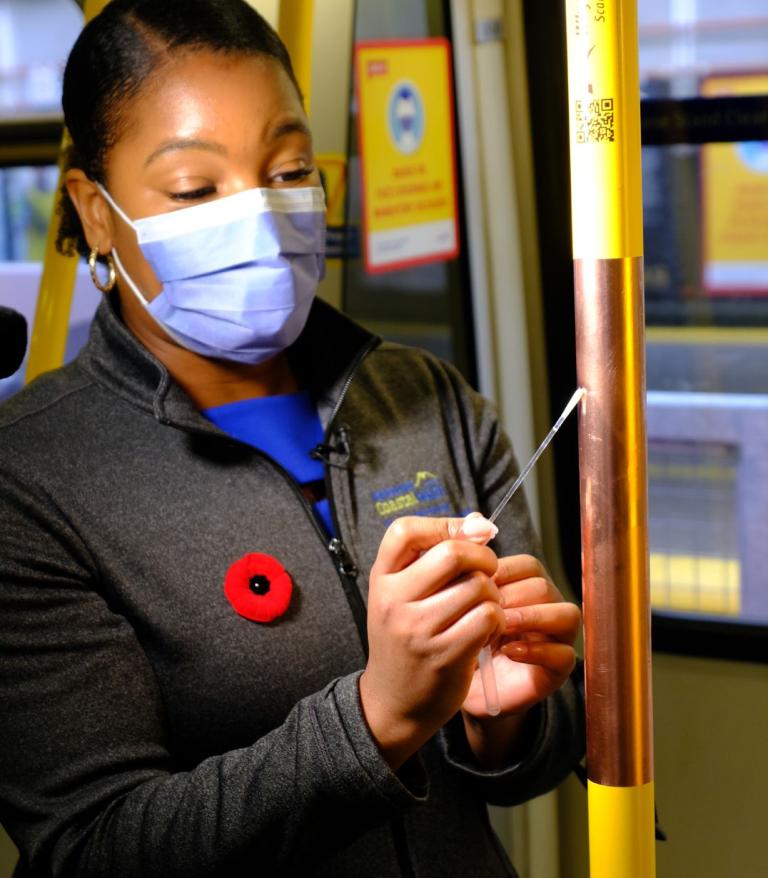Story
The results are in — copper kills up to 99.9% of bacteria on transit surfaces

This week, Vancouver Coastal Health (VCH), TransLink and Teck announced the results of phase one of the copper pilot project – a first-of-its-kind trial that studies the use of bacteria and virus-killing copper products on high-touch surfaces on transit.
Results from the trial show that copper is effective at killing bacteria on high-touch transit surfaces. Based on sample testing performed on transit and in a laboratory setting at VCH, the first phase of the trial concludes that select copper products on transit are durable and kill up to 99.9 per cent of all bacteria within one hour of the bacteria's contact with the surface.

"This project has been an incredible opportunity for our team to export our expertise and experience on self-disinfecting materials from the health care setting to our community."
Dr. Marthe Charles, Medical Microbiologist and division head for Medical Microbiology and Infection Prevention and Control at VCH.
We were pleased to see that the results from the trial were aligned with our previous studies in the hospital setting.
Phase one of the pilot lasted five weeks on two buses and two SkyTrain cars. The microbiological testing methodology for the study was developed and performed by VCH at Vancouver General Hospital (VGH). Durability testing was performed at the University of British Columbia (UBC). Samples were collected by Westech Cleaning Audit Systems.
Fast facts
- Copper is the only solid metal touch surface registered as a public health product by Health Canada and the U.S. Environmental Protection Agency, proven to naturally eliminate up to 99.9% of bacteria and viruses.
- Tests were conducted using surface cultures and ATP bioluminescent testing on samples taken from transit surfaces.
- Throughout the first phase of the trial, more than 1,140 samples were collected and analyzed.

Results from TransLink’s industry-leading trial show that copper is effective at killing bacteria on high-touch transit surfaces.
Phase two will begin in Spring 2021
To expand on phase one's results, a second phase will be launched in the coming months to verify the results with a larger sample of data. Phase two will focus on the products that were most effective on in the transit environment and will include testing copper products on more trains and busses for a longer amount of time to analyze varied conditions.
Preceding studies show that copper is both durable and effective at killing bacteria. Recognizing this potential, TransLink became the first transit agency in North America to test copper on transit surfaces. The pilot was launched as part of TransLink's COVID-19 response through the Safe Operating Action Plan. Pilot results could help inform decision-making for TransLink and other transit agencies across the globe. The research could also benefit any industry that relies on shared public spaces.
The pilot is the result of a partnership between TransLink, Teck, Vancouver Coastal Health (VCH), the University of British Columbia (UBC), Coalition for Healthcare Acquired Infection Reduction (CHAIR), and the VGH & UBC Hospital Foundation. The initial phase was fully funded by Teck, as part of its Copper & Health program. The second phase will also be supported by Teck.
Did you know?
The Bone Marrow Transplant Unit and the Intensive Care Unit at Vancouver General Hospital have been outfitted with copper as part of previous studies lead by the Infection Prevention and Control team.




